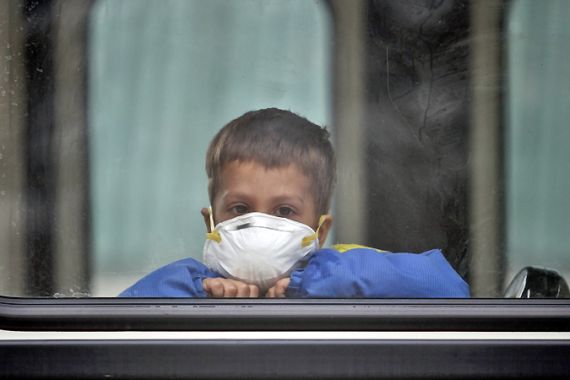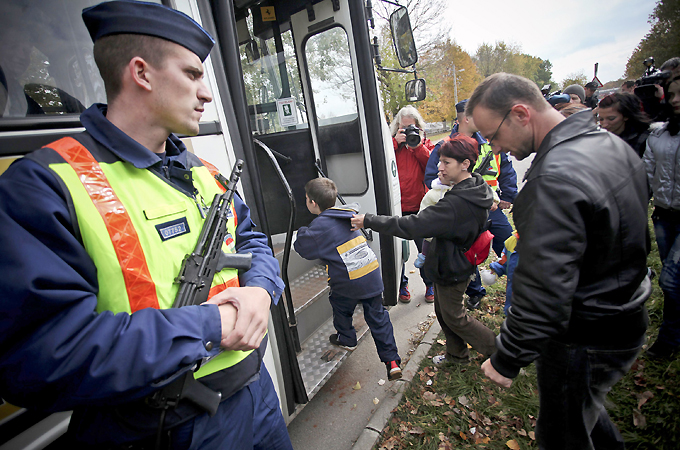Hungary spill plant reopens
Despite warnings affected area may not yet be safe, officials have allowed production to restart as residents return.

 |
| Residents from Kolontar – one of the hardest hit villages – have been given permission to return home [AFP] |
The aluminium plant behind the toxic sludge spill in Hungary that fatally flooded villages with caustic red mud has been reopened.
Despite warnings from environmentalists that the affected area may not yet be safe, the authorities allowed production to restart at the factory on Friday.
Keep reading
list of 4 itemsAfter the Hurricane
World’s coral reefs face global bleaching crisis
Why is Germany maintaining economic ties with China?
Residents of Kolontar, the first village to be devastated by the country’s worst-ever chemical accident, have also been given permission to return home.
Safety concerns
Disaster crews said about 380 of the 800 people evacuated from Kolontar had moved back to their homes by Friday afternoon.
According to officials, a system of dykes have been built to prevent any further spills from the seeping residue reservoir at an aluminium plant in Ajka, western Hungary.
| In Depth | |||||||||||||
|
The accident on October 4, described by officials as an ecological disaster, killed at least nine people, injured 150 and polluted a tributary of the Danube when the wall of the sludge reservoir, owned by MAL Zrt, failed.
The state commissioner who is overseeing MAL’s operations after the government took control of the firm earlier this week, said in a statement on Friday: “It will take a maximum four days for the plant to go back to normal operation. Next Tuesday, production will be up to full capacity.”
Meanwhile, police investigating the disaster have questioned a second suspect identified as Jozsef D, the technical director of MAL, although he has not been detained.
Monika Benyi, a police spokeswoman, said the man was suspected of causing danger to public safety and damage to the environment.
On Thursday, a Hungarian court ruled that police should release from custody Zoltan Bakonyi, the head of the aluminium company MAL, who was detained on suspicion of endangering public safety leading to multiple deaths and causing damage to the environment.
Hungarian police secured MAL’s premises earlier this week and took over MAL’s information systems after parliament rushed through emergency legislation allowing the centre-right government to take control of the company and its assets.
‘Entirely irresponsible’
The exact cause of the disaster is still not known, but Viktor Orban, the Hungarian prime minister, has blamed “human negligence” for the spill, Hungary’s worst ecological disaster.
|
“[We] ask the government to suspend the plan to restart production until causes of the disaster are clarified” Greenpeace Hungary |
Greenpeace, the environmental group, urged the government to keep the plant shut and said it was “entirely irresponsible” to let villagers return home because no data showed the area was safe.
“Greenpeace Hungary asks the government to suspend the plan to restart production at the plant until the causes of the disaster are clarified and environmental and health risks decrease significantly,” the environmental group said on Friday.
Villagers were advised to wear a dust mask at all times, said Gyorgyi Tottos, a spokeswoman for disaster crews.
“Cleanup crews and heavy machinery are at work, which stirs up the dust even more,” she said, adding it was up to every resident’s individual judgement whether to return or not.
She also said that the northern wall of the reservoir, which cracked on Saturday prompting the evacuation, had not shown further dislocation after the crack widened a few centimetres on Thursday.
Crews in Kolontar had built an emergency dam crossing the village to protect the area from a potential second sludge wave, in case of another reservoir wall failure.
